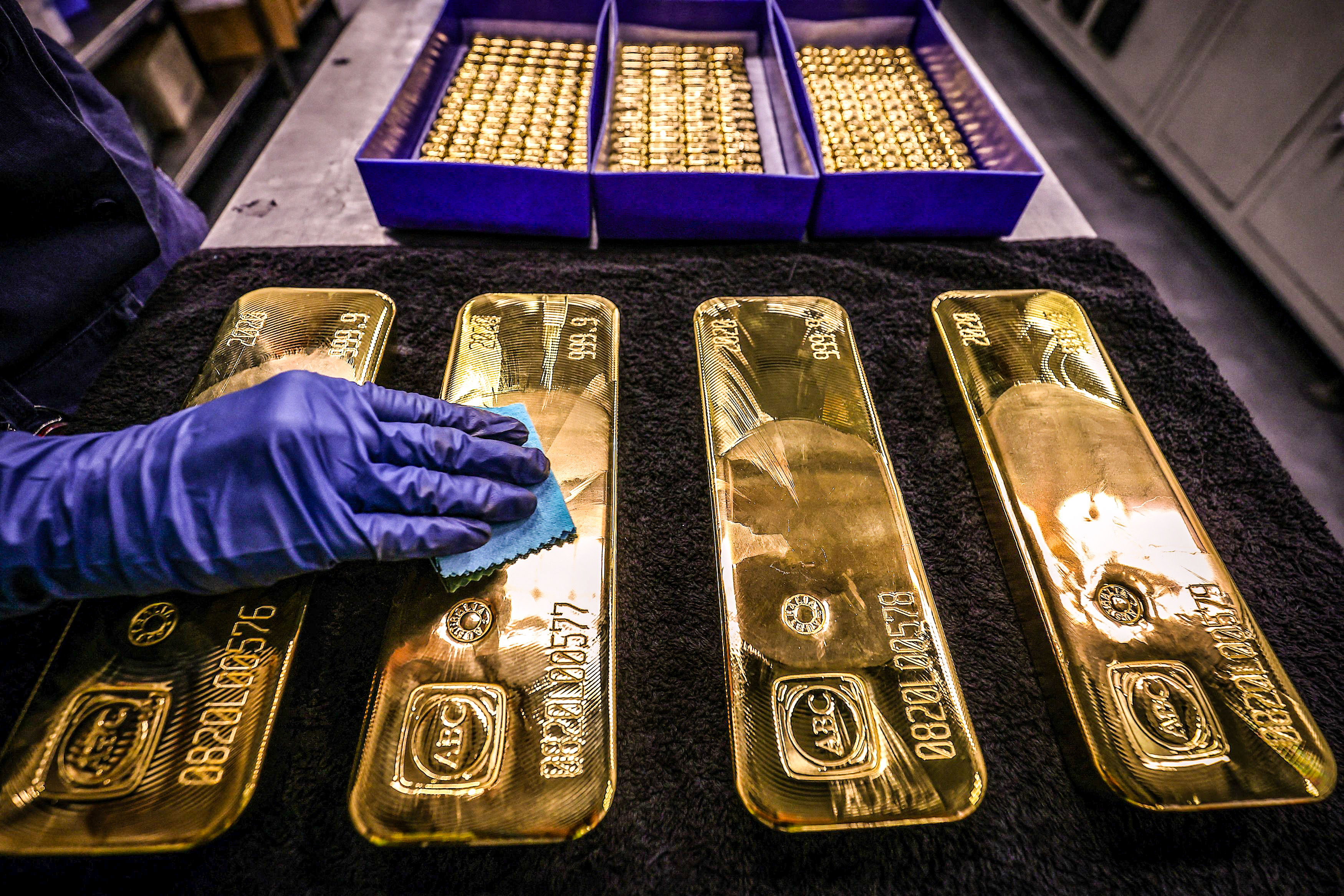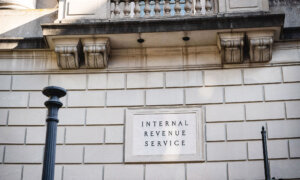Gold prices hit a new high on Oct. 30 amid the upcoming U.S. presidential election and ongoing geopolitical tensions, with investors awaiting the release of key economic data.
Spot gold prices breached the $2789 per oz. level in early trading on Wednesday, continuing the uptrend of the last few days. Gold has been bullish for the previous four trading days, moving from a low of $2,715 per ounce on Oct. 24 to $2,775 on Oct. 29.
Since the beginning of the year, gold has risen by more than 34 percent and is “on pace for its best year since 1979,” Charlie Bilello, chief market strategist at wealth management firm Creative Planning, said in an Oct. 30 post on social media platform X.
Barry Dawes, executive chairman of Martin Place Securities, noted that the current bull run seems parabolic in nature. “Lets see how high the vertical blow off will be ... Gold stocks breaking out suggests the spike peak would be only a short term high.” He predicts the price of gold is “on its way to highs above US$3,000.”
The jump in gold prices comes amid a host of geopolitical triggers. In the United States, presidential elections are set for next week. The two candidates, former President Donald Trump and Vice President Kamala Harris, are currently neck and neck in the race, with neither holding a clear lead over the other.
Investors are also waiting for a slew of economic data scheduled to be released this week, including the ADP employment change report, third quarter GDP growth rate, Core PCE price index, non-farm payrolls, and the unemployment rate.
The ongoing tensions in the Middle East add support to safe-haven gold prices.
Writing for Kitco, a retailer of bullion products, market analyst Gary Wagner noted earlier this month that gold prices climbed near recent record highs following Iran’s ballistic missile strike on Israel, “underscoring the precious metal’s status as a safe-haven asset during times of geopolitical uncertainty.”
Gold is supported by safe-haven bets as geopolitical tensions and political uncertainty continue, with Japan now being added into the mix on the political uncertainty front after the country’s snap election at the weekend, said Peter Grant, vice president and senior metals strategist at Zaner Metals.
Elections in Japan saw the ruling coalition lose its parliamentary majority for the first time in 15 years.
Gold Price Trend
An Oct. 29 report from Goldman Sachs predicts gold prices to “climb higher than previously expected.” The report points out that central banks in emerging nations have boosted purchases of the yellow metal.“Gold usually trades closely in line with interest rates. As an asset that doesn’t offer any yield, it typically becomes less attractive to investors when interest rates are higher, and it’s usually more desirable when rates fall,” the report stated.
While the relationship still holds, the sizable purchase of gold bars by central banks has reset the relationship between interest rates and gold prices since 2022, research analyst Lina Thomas said. Goldman Sachs calculates that demand for 100 tonnes of physical gold raises its prices by at least 2.4 percent.
Goldman now expects gold to hit $2,900 per ounce by early 2025, up from the earlier $2,700 estimate. The report cited concerns about the risk of financial sanctions as one of the reasons driving up central bank gold buying.
“With the US presidential election in focus, Western investors are returning to the gold market,” the report stated. “Gold may offer hedging benefits against potential geopolitical shocks, including potential rises in trade tensions, Federal Reserve subordination risk, and debt fears.”
Total gold demand has already jumped five percent year-over-year for the third quarter, according to an Oct. 30 report by the World Gold Council. This is a record for any third quarter, it noted. With gold prices rising 35 percent this year, the value of gold demand exceeded $100 billion for the first ever time, the report found.
Investment flows were key to gold’s Q3 performance as factors such as falling interest rates, momentum buying, and portfolio diversification, contributed to demand, it said.
Central banks bought 186 tonnes of gold in Q3, with year-to-date purchases in line with 2022 levels, the report noted.
In its full-year outlook for 2024, the World Gold Council expects that “resurgent professional flows combined with solid bar and coin investment will offset weaker consumer demand and slower central bank buying.”
Reuters contributed to the report.









